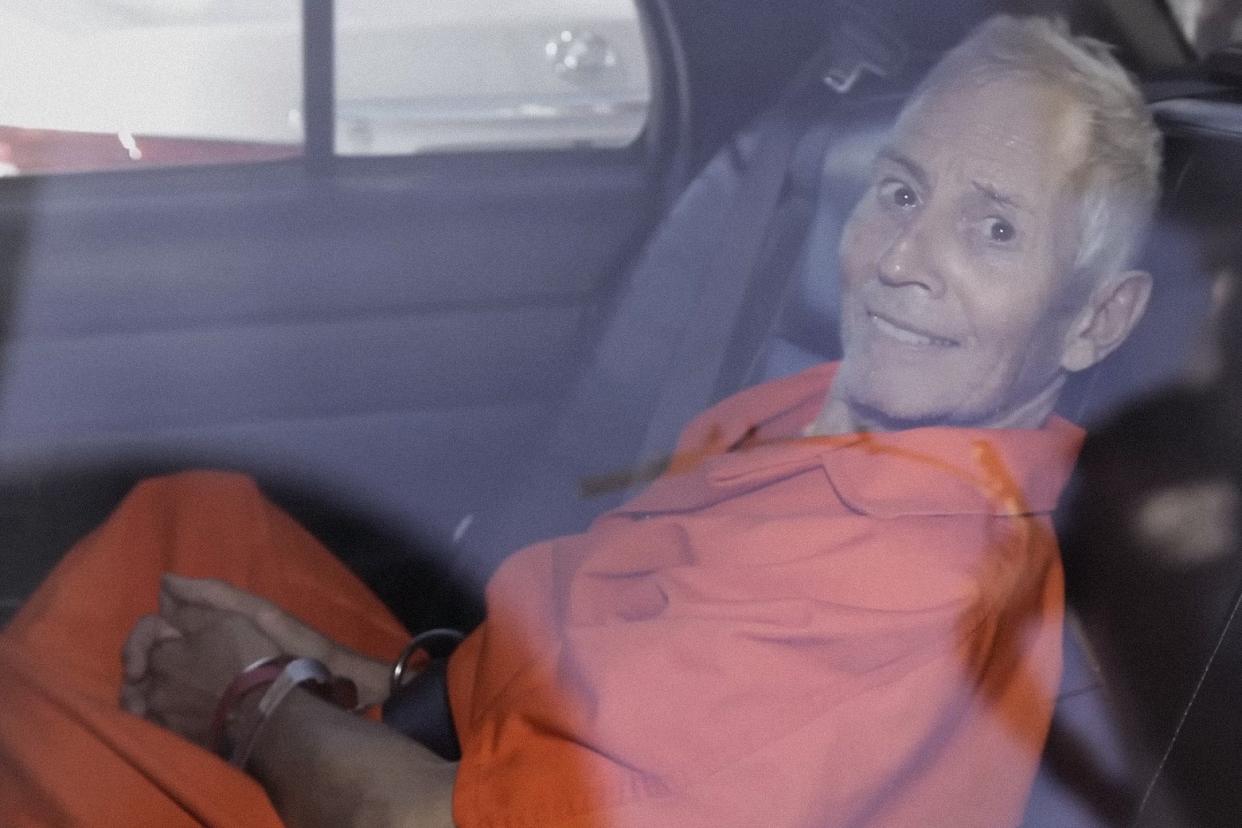The Sequel to One of the Biggest True-Crime Series Ever Just Ended. The Finale Shows What It Could Have Been.

- Oops!Something went wrong.Please try again later.
Given that HBO’s The Jinx was one of the progenitors of the true-crime boom, it’s not surprising that director Andrew Jarecki would want to reap some of the rewards of the cultural phenomenon he helped create. But The Jinx Part Two, whose six-episode run wrapped up this evening, was less a successor to the 2015 HBO series than an extended postscript, one that, in underlining the accomplishments of the original, also threw into stark relief its own lack of a compelling reason to exist. The Jinx contributed heavily, even primarily, to the arrest of a wealthy sociopath who had escaped justice for more than three decades, climaxing with the real estate heir Robert Durst’s hot-mic confession to triple homicide and his arrest on the eve of its final episode. Part Two follows his trial and eventual conviction for the murder of his friend Susan Berman, but it’s also obsessed with crowing over how much Part One accomplished, constantly underlining how Durst might have remained at large if it weren’t for Jarecki and crew. If The Jinx’s first part was a whodunit, the second is a wedidit.
The season, and presumably series, finale, “It Takes a Village,” takes a different and more fruitful tack, a development that’s both welcome and frustrating. Beginning with Durst’s death in January 2022, less than three months after his conviction for Berman’s murder, the episode shifts focus from Durst to his enablers: the friends, family members, and paid employees who turned a blind eye to the warning signs and kept him beyond the law’s reach when his violent tendencies turned criminal. Mark Windham, the judge who presided over Durst’s case and handed down the sentence of life without parole, tells Jarecki that “for the society to heal, there must be some process of assigning accountability.” But the courts’ power only stretches so far, and Durst’s passing left him forever beyond the reach of the law. In fact, not even his legal culpability survived his death, because, due to a peculiarity of California law, his conviction was vacated because he died before the completion of his first appeal.
If there’s a premise underlying the The Jinx, one beyond Durst’s guilt, it’s that the justice system needs help, especially the kind of help the combination of Jarecki’s resources (his father was a wealthy commodities trader) and HBO’s name can provide. But pursuing Durst’s conviction in a form that lacks the restraints of law or the accountability of journalism felt ethically murky. Perhaps it takes one billionaire’s son to catch another, but you never get the sense anyone involved with the project considered the ramifications of using documentary as a means to land a person behind bars. It’s one thing for a filmmaker to set their sights on freeing the innocent; Errol Morris’ The Thin Blue Line and Joe Berlinger and Bruce Sinofsky’s Paradise Lost trilogy are peaks of the form. But it’s more troubling for them to work in concert with power, no matter how just or noble the end might seem. It doesn’t matter if documentarians take insignificant liberties with the facts, like scrambling the timeline of Durst’s climatic interview in the first part of The Jinx, until their work turns prosecutorial, at which point they’re taking on the functions of the state without being subject to any of its restraints.
But in the case of Durst’s accessories, The Jinx is going after people the justice system can’t touch, or at least is unlikely to. The finale’s main target is Debrah Charatan, who was Durst’s wife from 2000 until his death. A commercial real estate broker who was more successful at publicizing herself than making major deals, Charatan obviously benefited from her proximity to Durst, acquiring a string of multimillion-dollar Manhattan properties after their association began. What Durst got from her is less clear. Charatan denies in a deposition—according to The Jinx, she refused numerous requests for an interview—that she ever spoke to Durst about moving his fortune into a trust where it could not be reached by the families of the people he allegedly killed, but the series has the audio of several prison phone calls where they discussed precisely that. And she still wields enough power to be a figure of fear. Durst’s attorney Dick DeGuerin has been a prominent face in The Jinx Part Two, discussing with apparent candor how their losing defense strategy played out. But when Jarecki raises the subject of Charatan, he immediately goes on the defensive, adopting a posture that suggests one more question could prompt him to walk.
That off-camera exchange notwithstanding, we see and hear a lot less of Jarecki in “It Takes a Village,” and the finale is stronger for it. Having taken us through the conviction the series helped secure, it finds belated humility in assessing the things it couldn’t. Part Two would have been far stronger if it had taken up the theme of communal complicity earlier on, been less monolithic in its focus on Robert Durst and more thoughtful about a society that creates and enables many more like him. (He is, after all, not the only son of a New York real estate mogul to evade prosecution for major crimes.) But that’s a trickier and less self-aggrandizing story for Jarecki to tell, and one he ultimately doesn’t seem very interested in.

